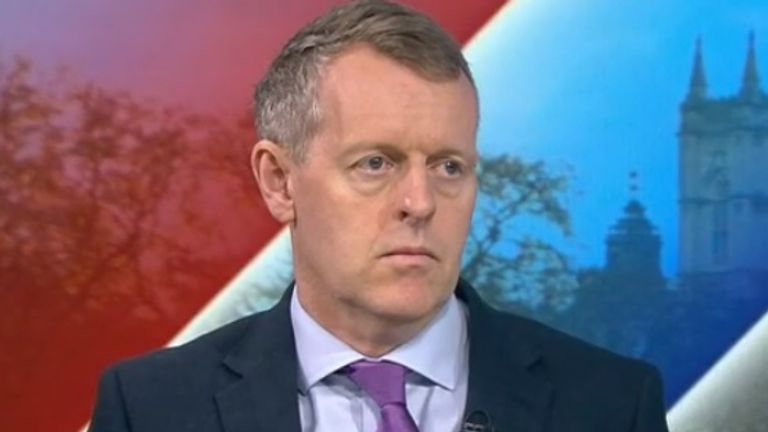It’s a question that’s plagued the healthcare sector and politics for many years, a source of contention at election after election – how do we fix the NHS?
In 1948, when the service was launched, the UK’s health demands were very different to today’s, with the population growing, shifting, and changing.
Waiting lists, staff burnout, and issues with social care all are causing challenges for the NHS.
The COVID-19 pandemic exacerbated many of these problems, and the service is now having to prepare for similar tests in the future. So how do we make sure the NHS is suited to the challenges it faces?
All week on the Sky News Daily podcast, lead UK presenter Sarah-Jane Mee has been looking at potential answers to that question with Sir David Nicholson, who was the chief executive of NHS England from 2006 to 2014.
Together, he and Sarah-Jane have spoken to the biggest names in health to ask how we could fix some of the most in-need parts of the service – here’s what they said.
Listen to all the episodes of the Sky News Daily’s How To Fix The NHS mini-series here
Accident and Emergency
Dr Adrian Boyle is the president of the Royal College of Emergency Medicine, and is also an emergency medicine consultant.
“The number of beds we’ve got we could probably get away with if the social care system was able to do all the things that we need [it] to do. We have almost the least number of beds per head of population of any comparable country,” he told the Sky News Daily.
“The fundamental problem is the lack of capacity in the system.
“We need…a compelling strategy that politicians will sign up to say ‘this is where we want to get to’, and then we can all get in behind it.”
Cancer care
Lord Darzi of Denham is a surgeon, who previously worked in the Department of Health under Gordon Brown, and has since been involved in developing global health. He is chair of surgery at the Institute of Cancer Research, and has been looking into some of the opportunities that artificial intelligence could bring to the NHS, especially around mammogram screenings.
“We have two radiologists who read each single mammogram currently in the NHS,” he tells the Daily. But using a newly developed AI algorithim can reduce the time needed to read the many scans the health service recieves each day.
“The combination of AI plus one reader is as good as two readers.
“Artificial intelligence algorithms could read mammograms 24 hours a day, seven days a week, so we’re not [dependent].
“But I’d just say that radiologists are still critical in doing all of this,” Lord Darzi adds. “You need quality assurance by a radiologist.”
Mental health
Dr Sarah Hughes is the chief executive of the mental health charity Mind.
Dr Hughes was involved in early initiatives to create a Britain where there’s zero suicide. The number of people who have taken their own lives in the country has fallen since data collection began in the 80s, but it’s still one of the biggest causes of death among men under 50.
“The issues that I’m concerned about now are that that is maintained, that we don’t take our foot off the pedal.
“The government has put in an investment, but what we want to see is that that is concurrent, that this is an ongoing commitment. We want to still reduce the number of people taking their own lives. We want to see that absolutely reduce by thousands.
“We’re not there yet, but we have had progress.”
Public health
Greg Fell is director of public health for Sheffield, and president of the Association of Directors of Public Health.
He says he’s optimistic about the future of the health service, despite some of the challenges.
“How do we know we’ve been successful? When nothing happens.
“And that’s part of the problem in public health. If we’re all about preventing things, it’s kind of hard to count the fruits of prevention because nothing happens is like the dog that doesn’t bark. You don’t know it’s there.
“If I get my job right, we’ll be healthier as a result and as a downstream result of that, there’ll be less demand in the NHS.”
Listen to all the episodes of the Sky News Daily’s How To Fix The NHS mini-series here
Interviews conducted by Sarah-Jane Mee, lead UK presenter, and Sir David Nicholson, former head of NHS England
Produced by Annie Joyce, senior producer, Sky News Daily podcast
Additional writing by David Chipakupaku, Sky News podcast promotion producer


